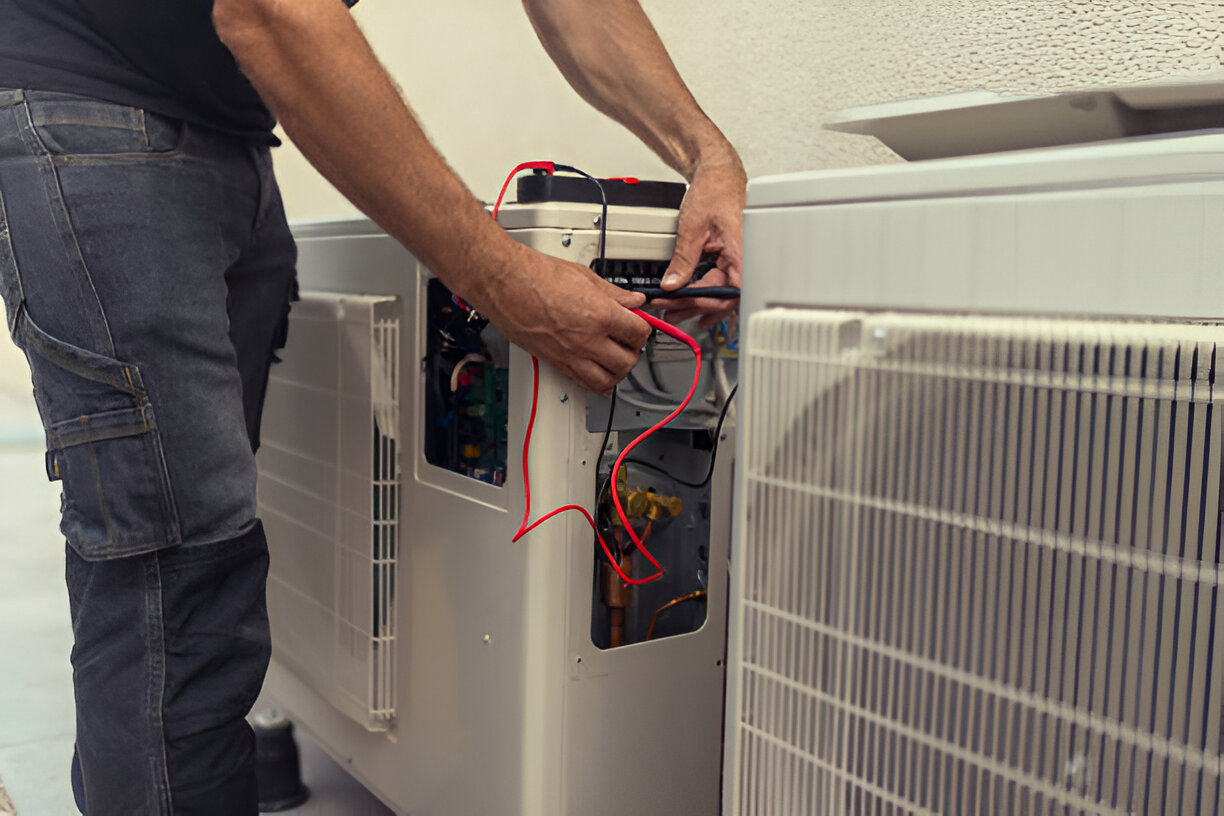
Heat Pump Tune-Up in Willow Street, PA
Keeping a heat pump running reliably through Lancaster County’s cold winters and humid summers starts with a thorough tune-up. A focused heat pump tune-up in Willow Street, PA targets performance, safety, and longevity—catching small problems before they become costly failures and helping preserve manufacturer warranty requirements.
Why a tune-up matters in Willow Street
Willow Street experiences cold, often damp winters and hot, humid summers. That seasonal swing puts frequent strain on heat pumps: long heating cycles in winter and heavy cooling loads in summer. Local factors—pollen in spring, agricultural dust, freeze-thaw cycles, and road salt exposure—also accelerate wear on outdoor units and degrade airflow. Regular tune-ups keep your system operating efficiently, reduce energy bills, avoid midseason breakdowns, and meet the documentation expectations many manufacturers require to keep warranty coverage intact.
Typical duration and frequency
- Typical duration: 60 to 90 minutes for a single-unit residential tune-up; dual-system homes or units with extensive cleaning needs may take longer.
- Recommended frequency: at least once per year, preferably twice (pre-winter and pre-summer) for homes that rely on a heat pump for both heating and cooling.
Complete heat pump tune-up checklist
A professional tune-up follows a structured checklist designed to verify safe operation and optimal performance. Key items include:
- Safety and visual inspection
- Inspect electrical disconnect, wiring, breakers, and fuses for loose connections, corrosion, or heat damage.
- Examine mounting, cabinet, and refrigerant lines for physical damage, rust, or evidence of leaks.
- Verify that safety controls and system interlocks function correctly.
- Airflow and indoor system checks
- Check and measure airflow from registers; inspect and clean or recommend replacement of HVAC filters.
- Inspect indoor coil and evaporator for dirt, biological growth, or blockage and clean if accessible.
- Verify duct connections and inspect visible ductwork for obvious air leaks or disconnected sections.
- Outdoor unit and refrigerant system
- Clean debris, leaves, and vegetation from around the condenser/coils; straighten bent fins and clean coil surfaces.
- Measure refrigerant pressures and temperatures to confirm proper charge and system balance.
- Check for signs of refrigerant leaks (oil staining, hissing sounds) and note if further leak repair is needed.
- Mechanical components and lubrication
- Inspect fan motors, belts (if applicable), and bearings; lubricate motors and moving parts where manufacturer permits.
- Confirm outdoor fan blade condition and secure mounting.
- Electrical and control testing
- Test contactors, relays, capacitors, and startup components for proper operation and wear.
- Measure voltage and amperage on compressors and motors to detect electrical stress.
- Verify thermostat calibration and communication with the outdoor unit; adjust settings for seasonal operation.
- System performance and diagnostic testing
- Run the heat pump in heating and cooling modes to observe cycle times, reverser valve operation, and defrost cycle behavior.
- Record indoor and outdoor temperatures, suction and discharge readings, and calculate basic system efficiency.
- Check condensate drain and pan for clogs; clear and sanitize drain if necessary.
- Documentation
- Provide a written service report listing findings, measured values, and recommended next steps—this record supports warranty compliance.
Immediate fixes vs recommended repairs
During a tune-up, technicians commonly address small, safe-to-fix items while documenting issues that require approval or parts.
Immediate fixes typically performed on the spot:
- Replacing clogged or dirty filters (if homeowner-provided or technician-stocked replacement).
- Tightening loose electrical connections and replacing minor fasteners.
- Cleaning accessible outdoor debris and trimming vegetation.
- Clearing condensate clogs and flushing drain lines.
- Lubricating motors and adjusting belts (where applicable).
Recommended repairs or items requiring follow-up:
- Refrigerant leak detection and recharge—requires leak repair and permits in many cases.
- Compressor or major component replacement (compressor, reversing valve, major electrical controls).
- Indoor coil replacement/major coil cleaning when corrosion or severe blockage is present.
- Duct sealing or significant airflow corrections that need additional materials or time.
- Upgrading failing capacitors, contactors, or thermostats when diagnosis shows impending failure.
Technicians will clearly separate what can be completed during the visit from what should be scheduled separately, providing cost and time estimates for recommended work.
How tune-ups prevent costly repairs and protect warranties
- Early detection: Regular pressure and electrical checks catch small refrigerant losses, failing capacitors, and worn motors before they cause a compressor failure—often the most expensive repair.
- Efficiency preservation: Clean coils and correct refrigerant charge restore manufacturer-rated efficiency, lowering utility costs and reducing run-time wear.
- Reduced downtime: Seasonal tune-ups reduce the risk of emergency breakdowns during peak heating or cooling demand in Willow Street.
- Warranty compliance: Many manufacturers specify routine, documented maintenance by a qualified technician as a condition of parts or limited warranties. A professional tune-up provides the inspection records and signatures typically needed to maintain warranty eligibility.
Common heat pump problems seen in Willow Street homes
- Reduced heating performance in cold snaps due to restricted airflow or low refrigerant.
- Short cycling caused by electrical or thermostat issues heightened by frequent on/off cycles in transitional seasons.
- Frosting and abnormal defrost cycles from failing sensors or reversing valves.
- Higher-than-expected energy bills due to dirty coils, poor airflow, or incorrect charge.
- Premature outdoor unit corrosion from salt and humidity exposure.


Enjoy flexible financing options that make upgrading or repairing your HVAC system easy and budget-friendly.










